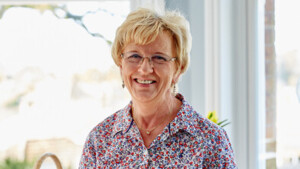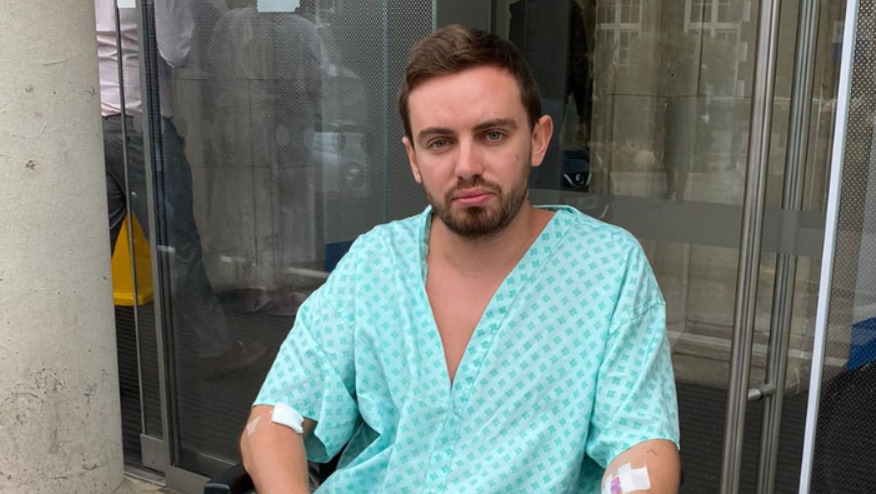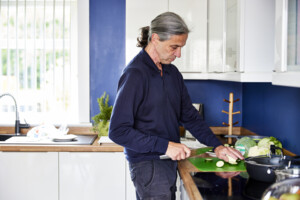Recognising signs and symptoms
Early detection can make a difference to treatment outcomes. For younger people, recognising symptoms can be challenging when bowel cancer isn't something they'd typically consider. Mohammad, Nick, and Nat featured here all experienced different symptoms before their diagnosis.
Mohammad's story (40)
Mohammad was enjoying life with his family and thriving in his career before his diagnosis in February 2021.
"Before my diagnosis life was great to be honest. I'd been promoted to a project manager role, (Ocado). I was eating healthily, having my smoothies, taking vitamins, going to the gym, cycling. I also have two energetic young children, who love to be outdoors, no matter the weather, we'd be out on nature walks, by the lakes or the seaside. We were loving life and everything was going swimmingly, until my diagnosis."
"I started experiencing symptoms in October, the year before [my diagnosis]. I'd woken up one morning, went downstairs and suddenly felt this sharp stabbing pain in my lower abdomen, which sent me to the floor on my knees. It only lasted 20 seconds, as quickly as it came on, it went."
As weeks passed, Mohammad noticed changes: "I started experiencing fatigue, I had little to no energy. I was constantly constipated and was just not eating as much as I used to. I thought it was my diet. So, I got the blender out, cut out all the fatty takeaway foods and get back on the healthy eating."
By the new year, his condition had worsened: "My family were telling me that something's not right, I wasn't myself. Where I could feel the stabbing pains, which became more frequent and intense, I could feel a lump forming."
Nick's story (37)
Nick maintained a healthy lifestyle before his diagnosis.
"Before I was diagnosed with cancer for the last two years, I had a very healthy lifestyle. I would train with my PT three times a week, eat very healthy and drink minimal alcohol."
"I started noticing blood when I had a 'number 2'. [poo] I didn't really think much of it and just put it down to eating lots of 'naughty' food compared to my normal diet. However, as the month went on and going into January 2021 the blood didn't stop and I started noticing my bowel habits were changing as well. I was noticing more loose stools and also, I sometimes felt constipated." These persistent symptoms eventually prompted him to seek medical advice, encouraged by his mother.
Nathaniel's Story (39)
For Nathaniel, an avid runner, the first indication came through changes in his physical performance.
"I knew something was up because in running, maybe a year before I was diagnosed, I was doing all the right things. I had a coach, was doing all the strength work, eating incredibly well, (I'm a vegan). I was also turning down extra work to rest. However, I was getting slower, by around 10 seconds a mile. I wasn't old enough to be getting naturally slower. I was going backwards despite doing all the right things."
"Going to the toilet more often happens if you're vegan, or it does for me anyway. I didn't really think much of it, but it was getting extreme. By the March, I was getting huge pains, constipated and trapped wind. I thought I had appendicitis. That went away a little bit and would come and go. When you're fit and healthy and the symptoms go away, you think you're fine. Then it would come back and gradually more often."
"I'd have pencil-thin stools, I wasn't sure if there was blood. By the September, it became really obvious I needed to put my hand up."





